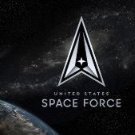Members Can Post Anonymously On This Site
Crawling humanoid figure filmed at haunted National Trust country park in England
-
Similar Topics
-
By European Space Agency
Image: The Copernicus Sentinel-2 mission captures the striking landscape surrounding the Waza National Park in Cameroon. View the full article
-
By Space Force
The U.S. Space Force and ULA launch team successfully completed the certification process of the Vulcan rocket. The first NSSL mission on Vulcan is expected this summer.
View the full article
-
By NASA
On March 3, 1915, the United States Congress created the National Advisory Committee for Aeronautics (NACA). Although the NACA’s founding took place just over 11 years after the Wright Brothers’ first powered flightfirst powered flight at Kitty Hawk, North Carolina, Congress took the action in response to America lagging behind other world powers’ advances in aviation and aeronautics. From its modest beginnings as an advisory committee, over the years, the NACA established research centers and test facilities that enabled groundbreaking advances in civilian and military aviation, as well as the fledgling discipline of spaceflight. With the creation of the National Aeronautics and Space Administration in 1958, the new agency incorporated the NACA’s facilities, its employees, and its annual budget. The NACA provided NASA with a strong foundation as it set out to explore space.
The first meeting of the National Advisory Committee for Aeronautics on April 23, 1915.NASA The NACA executive committee in 1934. NASA The Congressional action that created the NACA, implemented as a rider to the 1915 Naval Appropriations Bill, reads in part, “…It shall be the duty of the advisory committee for aeronautics to supervise and direct the scientific study of the problems of flight with a view to their practical solution. …”. In its initial years, the NACA fulfilled its intended role, coordinating activities already in place in the area of aeronautics research, reporting directly to the president. The committee, made up of 12 representatives from government agencies, academia, and the military, first met on April 23 in the Office of the Secretary of War in Washington, D.C. It established a nine-member executive committee to oversee day-to-day operations and spent the first few years establishing its headquarters in Washington.
The committee’s logo, approved in 1941.NASA The committee’s seal, approved by presidential executive order in 1953.NASA
Hangars at the Langley Memorial Aeronautical Laboratory in Hampton, Virginia, in 1931. NASA The Variable Density Tunnel at Langley. NASA Aerial view of the Ames Aeronautical Laboratory in Sunnyvale, California, in 1944. NASA Aerial view of the Aircraft Engine Research Laboratory in Cleveland, Ohio, in 1945.NASA Within a few years, the NACA’s role began to expand with the establishment of research facilities. The Langley Memorial Aeronautical Laboratory, today NASA’s Langley Research Center, in Hampton, Virginia, opened on June 11, 1920. Over the next few decades, Langley served as a testing facility for new types of aircraft, using wind tunnels and other technological advances. The Ames Aeronautical Laboratory in Sunnyvale, California, today NASA’s Ames Research Center, opened in 1940 and the Aircraft Engine Research Laboratory in Cleveland, today NASA’s Glenn Research Center, in 1941. The three labs achieved many breakthroughs in civilian and military aviation before, during, and after World War II. The Cleveland lab, renamed the Lewis Flight Propulsion Laboratory in 1948, concentrated most of its efforts on advances in jet propulsion.
The NACA High-Speed Flight Station, now NASA’s Armstrong Flight Research Center, at Edwards Air Force Base in California’s Mojave Desert. NASA The Bell X-1, the first aircraft to break the sound barrier in 1947.NASA The first sounding rocket launch from the Pilotless Aircraft Research Station at Wallops Island, Virginia, in 1945.NASA After World War II, the NACA began work on achieving supersonic flight. In 1946, the agency established the Muroc Flight Test Unit at the Air Force’s Muroc Field, later renamed Edwards Air Force Base, in California’s Mojave Desert. In a close collaboration, the NACA, the Air Force, and Bell Aircraft developed the X-1 airplane that first broke the sound barrier in 1947. Muroc Field underwent several name changes, first to the High-Speed Flight Station in 1949, then in 1976 to NASA’s Dryden, and in 2014 to Armstrong Flight Research Center. In 1945, the NACA established the Pilotless Aircraft Research Station on Wallops Island, Virginia, now NASA’s Wallops Flight Facility, as a test site for rocketry research, under Langley’s direction. From the first launch in 1945 through 1958, the NACA launched nearly 400 different types of rockets from Wallops.
Shadowgraph of finned hemispherical model in free flight shows shock waves produced by blunt bodies.NACA Meeting of the NACA’s Special Committee on Space Technology in May 1958.NASA In the 1950s, the NACA began to study the feasibility of spaceflight, including sending humans into space. In 1952, NACA engineers developed the concept of a blunt body capsule as the most efficient way to return humans from space. The design concept found its way into the Mercury capsule and all future American spacecraft. Following the dawn of the space age in 1957, the NACA advocated that it take the lead in America’s spaceflight effort. The Congress passed, and President Dwight D. Eisenhower signed legislation to create a new civilian space agency, and on Oct. 1, 1958, NASA officially began operations. The new organization incorporated the NACA’s research laboratories and test facilities, its 8,000 employees, and its $100 million annual budget. Many of NASA’s key early leaders and engineers began their careers in the NACA. The NACA’s last director, Hugh Dryden, served as NASA’s first deputy administrator.
For more information about the NACA and its transition to NASA, read former NASA Chief Historian Roger Launius’ book NASA to NASA to Now: The Frontiers of Air and Space in the American Century. Watch this video narrated by former NASA Chief Historian Bill Barry about the NACA.
Explore More
7 min read 65 Years Ago: The National Aeronautics and Space Act of 1958 Creates NASA
Article 2 years ago 4 min read 65 Years Ago: Eisenhower Nominates Glennan and Dryden to Top NASA Positions
Article 2 years ago 6 min read 65 Years Ago: NASA Begins Operations
Article 1 year ago 7 min read 65 Years Ago: The International Geophysical Year Begins
Article 3 years ago View the full article
-
By NASA
Wayne Johnson, who in 2012 earned the highest rank of Fellow at NASA’s Ames Research Center in California, is known worldwide as an expert in rotary wing technology. He was among those who provided help in testing Ingenuity, NASA’s Mars helicopter.NASA / Eric James NASA Ames’ Wayne Johnson Elected to 2025 Class of New Members of the National Academy of Engineering (NAE)
Dr. Wayne R. Johnson, aerospace engineer at Ames Research Center, will be inducted as a new member of the prestigious National Academy of Engineering (NAE), class of 2025, on October 5, 2025, for his 45+ years of contributions to rotorcraft analysis, tiltrotor aircraft development, emerging electric aircraft, and the Mars Helicopter development. NAE members are among the world’s most accomplished engineers from business, academia, and government and are elected by their peers. The full announcement was released to the press on February 11, 2025 from NAE and is at
https://www.nae.edu/19579/31222/20095/327741/331605/NAENewClass2025
View the full article
-
By NASA
The National Academy of Engineering (NAE) has elected three new members with NASA affiliations. Two employees and one retiree from three different NASA centers around the country were awarded the honor on Feb. 7.
Election to the NAE is among the highest professional distinctions accorded to an engineer. Individuals in the newly elected class will be formally inducted during the NAE’s annual meeting Oct. 1.
Academy membership honors those who have made outstanding contributions to “engineering research, practice, or education, including, where appropriate, significant contributions to the engineering literature” and to ‘the pioneering of new and developing fields of technology, making major advancements in traditional fields of engineering, or developing/implementing innovative approaches to engineering education.”
Christine Mann Darden, director (retired), Strategic Communications Office, NASA Langley Research Center, Hampton, Virginia.u003cstrongu003eu003cemu003eCredits: NASAu003c/emu003eu003c/strongu003e Christine Mann Darden, director (retired), Strategic Communications Office, NASA Langley Research Center, Hampton, Virginia, was awarded for pioneering research in supersonic flight technologies and leadership in advancing aerodynamics design to produce low-boom sonic effects. She is internationally known for her research into supersonic aircraft noise, especially sonic boom reduction, and recognized for her groundbreaking achievement as the first African American woman at NASA Langley to be appointed to the top management rank of Senior Executive Service. She is equally known for her efforts to inspire and educate generations of aerospace scientists and engineers.
Christa D. Peters-Lidard, deputy director, Science and Exploration, NASA Goddard Space Flight Center, Greenbelt, Maryland.u003cstrongu003eu003cemu003eCredits: NASA Office of the Chief Information Officeru003c/emu003eu003c/strongu003e Christa D. Peters-Lidard, director, Science and Exploration, NASA Goddard Space Flight Center, Greenbelt, Maryland, was honored for contributions to understanding land-atmosphere interactions, soil moisture monitoring and modeling, and leadership in Earth system modeling. Her research interests include the application of high-performance computing and communications technologies in Earth system modeling, for which her Land Information System team was awarded the 2005 NASA Software of the Year Award.
Vanessa E. Wyche, director, NASA Johnson Space Center, Houston.u003cstrongu003eu003cemu003eCredits: NASAu003c/emu003eu003c/strongu003e Vanessa E. Wyche, director, NASA’s Johnson Space Center, Houston, received the honor for leadership of NASA Johnson, enabling a commercial low-Earth orbit space economy and future Moon and Mars missions. She is responsible for a broad range of human spaceflight activities, including development and operation of human spacecraft, NASA astronaut selection and training, and mission control. Wyche oversees commercialization of low-Earth orbit – ensuring commercially provided destinations to continue research there following transition from the International Space Station in 2030. Additionally, she leads Johnson’s role in exploring the Moon and Mars with NASA’s Artemis spacecraft, including surface system capabilities for human and commercial robotic missions, and partners with academia, industry, and international community to establish a sustainable lunar economy.
Rob Gutro
NASA’s Goddard Space Flight Center
Robert.j.gutro@nasa.gov
L. Eileen Erickson / Kim Case
National Academy of Engineering
lerickson@nae.edu / KCase@nae.edu
Explore More
8 min read John Moisan Studies the Ocean Through the ‘Eyes’ of AI
Article 14 mins ago 5 min read Mark SubbaRao Brings Data to Life Through Art
Article 14 mins ago 5 min read NASA Scientists & Historian Named AAAS 2022 Fellows
Article 14 mins ago Share
Details
Last Updated Feb 10, 2025 Related Terms
Goddard Space Flight Center Johnson Space Center Langley Research Center People of Goddard View the full article
-
-
Check out these Videos





Recommended Posts
Join the conversation
You can post now and register later. If you have an account, sign in now to post with your account.
Note: Your post will require moderator approval before it will be visible.